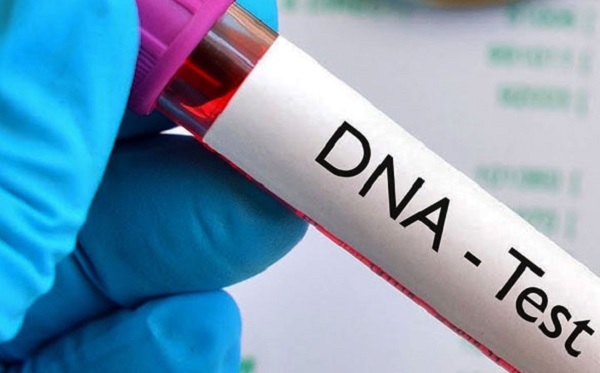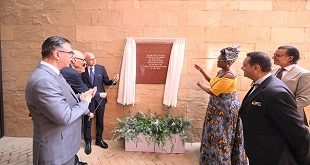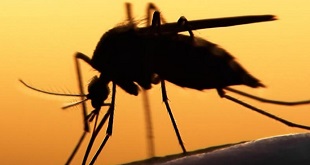
Kampala, Uganda | THE INDEPENDENT | Forensic DNA profiling can play an important role in identifying the bodies of victims of disasters and armed conflicts.
While talk around DNA in Uganda has been limited to paternity tests or determining one’s fatherhood or finding perpetrators of crime, a number of experts say its importance will be greater as the impacts of man-made climate change worsen.
Large-scale disasters and conflicts have led to the death of persons whose bodies can hardly be identified but through Deoxyribonucleic acid (DNA) or the genetic material we inherit from our mother and father, they can be identified.
Some of the leading African and Western forensic experts say identifying victims whose bodies have been shattered beyond recognition could be easy if countries had DNA profiles of their citizens.
The latest al-Qaeda-linked al-Shabab attack on the UPDF camp in Bulo Marer in Somalia is one example being advanced in support of DNA profiling of combatants on such deadly missions.
The al-Shabab used car bombs and automatic weapons to shell some of the UPDF soldiers beyond recognition. Identifying those bodies require expert analysis beyond the standard autopsies. DNA analysisis the only viable method for identifying severely fragmented or degraded remains.
Press reports have indicated that while some of the body parts were flown back, they could not be identified and that the army has been calling the relatives of the deceased like Major Olet Ogom, Christopher Okullo, and Ray Yapi among others for DNA tests in an effort to identify the victims.
Stephen Fonseca, the Head of the African Centre for Medicolegal Systems at the International Committee of Red Cross (ICRC) said in situations like what happened in Somalia, it would have been easy to identify parts of the bodies of the slain soldiers had their DNA been profiled and kept at a database.
Fonseca was one of the speakers at the just concluded DNA Forensic Symposium in Cape Town South Africa attended by African and international Forensic experts.
Fonseca said DNA profiling can play a very important role in assisting first responders in identifying and reuniting people with their loved ones.
“If we look outside the courtrooms, think of how many people have lost their loved ones, how many people are looking for someone who has been missing in their lives? Think of how many people are waiting outside the mortuary today hoping to identify their loved one. Hoping that the person was correctly identified. That is why forensics should be applied in a humanitarian way”
Fonseca, who previously worked as a forensic pathologist with the Canadian government said thousands of human remains lie in morgues unclaimed by their immediate families because their DNA was not profiled.
He said clarifying the fate and whereabouts is a complex and lengthy process and so it should be a source of concern for everyone. The risk of one’s going missing according to Fonseca is particularly high in countries faced with armed countries or prone to trafficking in persons.
Apart from situations of armed conflict, ICRC has found that natural disasters may generate a large number of human casualties that need to be recognized using forensic DNA other than other methods like fingerprints.
He says the advance in forensics in other countries has really mobilized society to take a second look at ensuring that the humanitarian needs of the families of the missing persons, of the dignity of the dead, can identify them.
“I have been fortunate to have investigated cases where families had been looking for their loved ones for over five decades. You can imagine the power of science. After four decades we can return the remains of a person to their families after they had almost lost hope,” said Fonseca.
In April 2021, the Institute for Security Studies, ICRC – International Committee of the Red Cross (ICRC) released a report on the situation of families whose relatives have gone missing due to armed conflict, violence, disaster, or migration.
The report covered Uganda Cameroon, Ethiopia, Libya, Nigeria, and Senegal. For Uganda, the report said family members interviewed revealed that there were 1332 missing persons. It covered the period between 1986-2006 around the time of the LRA rebellion. Ninety percent of the missing person were male some of them were just boys.
Relatives and family members continue to live in trauma and agony. They don’t know whether they died. If they died, what was the cause of their death? If they were trafficked, where are they? And if they died and were possibly buried in mass graves, how can they identify their remains for decent burial?
The report said 56% of families in northern Uganda said their hearts were bleeding of “cwer cwiny” to describe their suffering, 38% expressed being worried, while 20% mentioned they were suffering from a ‘sickness of thought” or two tam in luo language.Fonseca said there are so many unidentified people that get buried yet they could be through forensic DNA.
“People are being buried as unidentified year after year. Thousands of bodies are put into common graves. It is a catastrophe, it is a total disaster that is being ignored,” In countries where national fingerprint and DNA databases are not functioning to the expectation and where there are no DNA profile databases that can be compared against.
Fonseca said the burden is left to family members to bear the identification burden.
To Fonseca, families are key in investigating missing persons. While Stephen Fonseca and others suggest that African countries should establish forensic DNA databases for identifying missing persons and fighting against crime, some forensic scientists seem to oppose it especially when it comes to crime.
Fonseca said there are so many unidentified people that get buried yet they could be through forensic DNA.
“People are being buried as unidentified year after year. Thousands of bodies are put into common graves. It is a catastrophe, it is a total disaster that is being ignored,” In countries where national fingerprint and DNA databases are not functioning to the expectation and where there are no DNA profile databases that can be compared against.
Fonseca said the burden is left to family members to bear the identification burden. So to Fonseca, families are key in investigating missing persons. While Stephen Fonseca and others suggest that African countries should establish forensic DNA databases for identifying missing persons and fighting against crime, some forensic scientists seem to oppose it especially when it comes to crime.
Should Countries Establish DNA Profiles?
Dr. Aaron Amankwa, a Ghanaian Forensic Research Scientist specializing in Biometrics, Genetics, and Biology said DNA forensic profiling for humanitarian action is relatively new. He is among the experts suggesting caution against mixing criminal DNA databases and those needed for humanitarian action.
But Amankwa cautions that if countries don’t have the required laws and regulatory frameworks or policies to govern forensic DNA, an innocent person may go to jail while a would-be guilty person could go scot-free.
Amankwa is of the view that the laws and regulations should be in place before countries begin establishing national DNA databases.
Some research studies have found that family members may distrust government databases and be reluctant to report missing persons and provide reference samples.
Fonseca agrees with Dr. Amankwa that DNA forensic profiling databases for humanitarian action should be truly in humanitarian spirit not looking at prosecution. “While we fully support that, but looking at the true spiritual and humanitarian needs of the individual, the family, and the community,” said Fonseca.
*****
URN
 The Independent Uganda: You get the Truth we Pay the Price
The Independent Uganda: You get the Truth we Pay the Price


